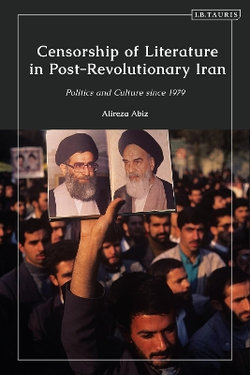Censorship pervades all aspects of political, social, and cultural life in the Islamic Republic of Iran. Faced with strict state control of cultural output, Iranian authors and writers have had to adapt their work to avoid falling foul of the censors. In this pioneering study, Alireza Abiz offers an in-depth, interdisciplinary analysis of how censorship and the political order of Iran have influenced contemporary Persian literature, both in terms of content and tone, from 1979 to the present. As censorship is unrecorded and not officially acknowledged in Iran, Abiz has examined newspaper archives and conducted first-hand interviews with Iranian poets and writers, exploring the ways they attempt to subvert the codes of censorship by using symbolism and figurative language to hide their more controversial messages. A ground-breaking analysis, this book is vital reading for anyone interested in contemporary cultural politics and literature in Iran.




Share This Book: